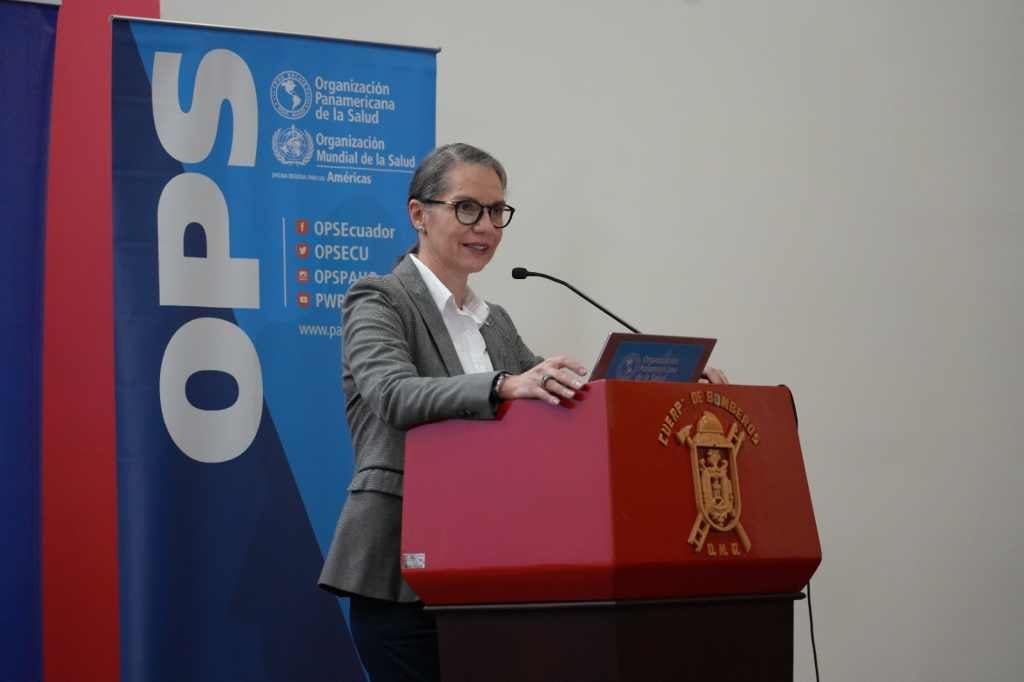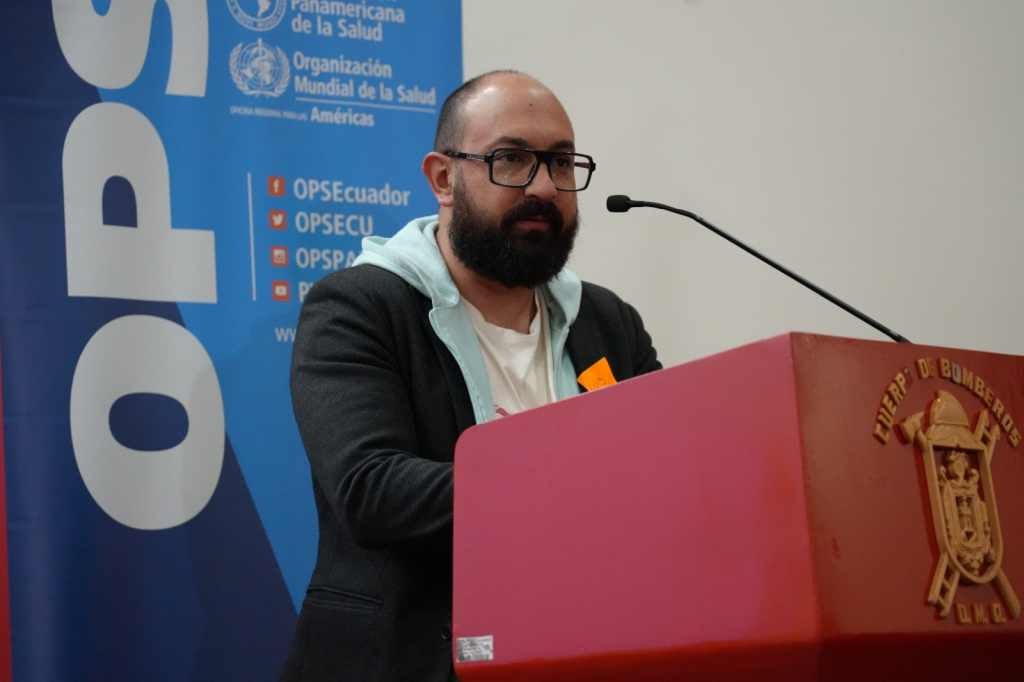
Quito, July 16, 2024 - In a joint effort between the Municipality of Quito and the Pan American Health Organization/World Health Organization (PAHO/WHO), 58 communications directors from the local government secretariats strengthened their knowledge in Risk Communication and Community Participation (CRPC) during the first week of July.
The training is part of a PAHO/WHO-led initiative, primarily funded by the European Union, that seeks to strengthen preparedness for health and disaster emergencies in urban settings in Latin American cities that face unique challenges in managing large volumes of population and urban mobility. "The initiative includes strategic risk assessment, capacity analysis for roadmap design, and capacity strengthening for response and recovery, including risk communication and community engagement," said Celso Bambaren, head of the Country Preparedness and International Health Regulations Unit of the PAHO/WHO Health Emergencies Department.
The 20-hour theoretico-practical workshop was designed to train trainers. It featured master classes on the context of emergencies in Ecuador and Quito, and on the community composition of the city. A case study on COVID-19 vaccination in indigenous populations and WHO guidelines for infodemic management were also presented. The workshop employed the "learning by doing" methodology, which included explaining theoretical models of social sciences and practical strategic planning tools for diagnosis, stakeholder mapping, behavioral change analysis and a checklist for designing community participation strategies.
“Quito is one of the three cities chosen in the Americas to pilot this initiative. We are pleased to be pioneers and work with municipalities and local governments; so that it is in the territorial organizations that capacities are strengthened in the face of possible emergencies in urban environments," highlighted the PAHO/WHO Representative of Ecuador, Dr. Sonia Quezada.
According to Luis Padilla, Acting Secretary of Communication for the Municipality of Quito, "During the four days of the workshop, the communicators developed a communication strategy based on an emergency, and when we had the opportunity to see the results of that work, it was really surprising. They came to understand and internalize risk communication and community engagement concepts, and I believe that there is now installed capacity that will be very beneficial for the city of Quito and that will allow them to be prepared for eventual emergencies in urban environments".
Strong positive feedback was received by the 90 percent of the workshop participants who responded to the evaluation, confirming that this initiative contributes to personal growth, applied to public communication skills. Participants also recommend more workshops to further explore in depth the risk challenges that the city of Quito faces.
This workshop was made possible thanks to the financial support of the European Union as well as the Government of Canada and the Bureau for Humanitarian Assistance of the United States Agency for International Development (USAID/BHA).





